
The Enchanting Coastal Haven of Gouvia
Nestled along the eastern coast of Corfu, Gouvia is a picturesque village that offers a blend of natural beauty, history, and modern amenities. This charming destination is known for its stunning marina, which serves as a haven for yachts and sailing enthusiasts from around the world. The marina area is lined with quaint cafes, restaurants, and shops, making it a delightful spot for a leisurely stroll or a relaxing meal with a view of the water. Gouvia's rich history is evident in its architecture and landmarks. The remnants of the Venetian shipyard, dating back to the 18th century, are a must-see for history buffs. These ancient ruins provide a glimpse into the village's maritime past and offer a unique backdrop for photos. For those looking to explore further, the nearby Gouvia Bay is perfect for swimming and sunbathing, with its crystal-clear waters and sandy beaches providing a tranquil escape. Beyond its scenic beauty and historical sites, Gouvia is also a great base for exploring the rest of Corfu. The village is well-connected by public transport, making it easy to venture into Corfu Town, where you can discover more of the island's cultural and historical treasures. Whether you're seeking relaxation, adventure, or a bit of both, Gouvia promises an unforgettable experience in one of Greece's most beloved destinations.
Local tips in Gouvia
- Visit the Venetian shipyard ruins early in the morning to avoid crowds and enjoy the peaceful surroundings.
- Rent a boat or join a sailing tour from the marina to explore the beautiful coastline and nearby islands.
- Try the local seafood at one of the waterfront tavernas for an authentic taste of Corfiot cuisine.
- Use the local bus service to easily travel to Corfu Town and other nearby attractions without the hassle of driving.
The Enchanting Coastal Haven of Gouvia
Nestled along the eastern coast of Corfu, Gouvia is a picturesque village that offers a blend of natural beauty, history, and modern amenities. This charming destination is known for its stunning marina, which serves as a haven for yachts and sailing enthusiasts from around the world. The marina area is lined with quaint cafes, restaurants, and shops, making it a delightful spot for a leisurely stroll or a relaxing meal with a view of the water. Gouvia's rich history is evident in its architecture and landmarks. The remnants of the Venetian shipyard, dating back to the 18th century, are a must-see for history buffs. These ancient ruins provide a glimpse into the village's maritime past and offer a unique backdrop for photos. For those looking to explore further, the nearby Gouvia Bay is perfect for swimming and sunbathing, with its crystal-clear waters and sandy beaches providing a tranquil escape. Beyond its scenic beauty and historical sites, Gouvia is also a great base for exploring the rest of Corfu. The village is well-connected by public transport, making it easy to venture into Corfu Town, where you can discover more of the island's cultural and historical treasures. Whether you're seeking relaxation, adventure, or a bit of both, Gouvia promises an unforgettable experience in one of Greece's most beloved destinations.
Iconic landmarks you can’t miss
D-Marin Gouvia Marina
Experience the Ionian Sea from Corfu's premier marina, offering world-class facilities and a rich maritime history.
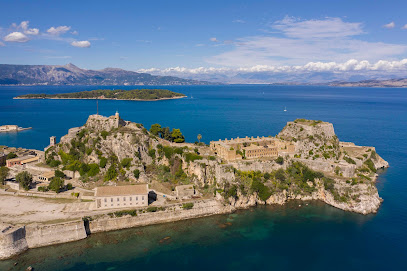
TheBest
Experience authentic Greek flavors and warm hospitality at TheBest restaurant in Gouvia, Corfu. A must-visit culinary destination!
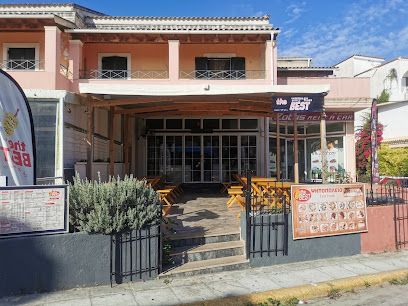
Danilia Village
Step back in time at Danilia Village, a charming replica of a 1930s Corfiot village, offering a unique glimpse into Corfu's rich heritage.
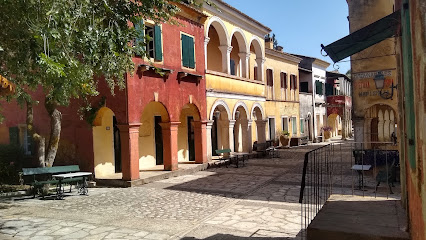
WWI Serbian Soldiers Mausoleum
Pay tribute to the fallen Serbian soldiers of WWI at this serene Corfu mausoleum, a symbol of Greek-Serbian friendship and sacrifice.
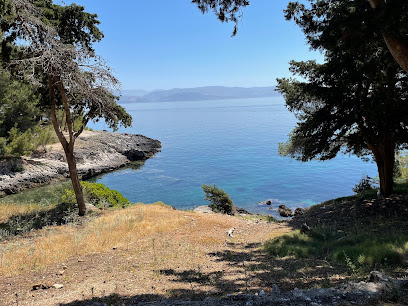
Venetian Shipyard at Gouvia
Explore Corfu's Venetian past at the Gouvia Shipyard, where historic arches meet modern marina views.
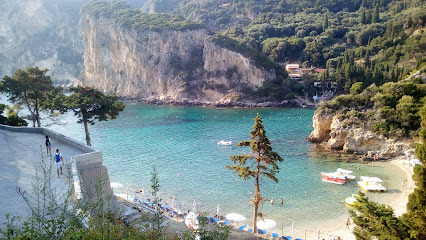
Church of the Hypapante at Gouvia
Discover the serene beauty of this 18th-century Greek Orthodox church on a picturesque islet in Gouvia Bay, Corfu. A perfect spot for reflection.
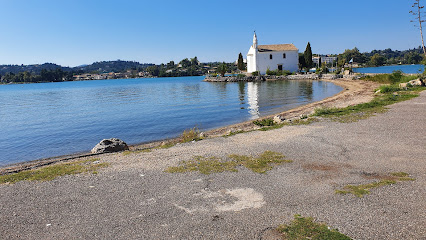
9 Muses Restaurant
Experience authentic Greek cuisine with stunning Gouvia Bay views at 9 Muses Restaurant, a culinary gem since 1992.
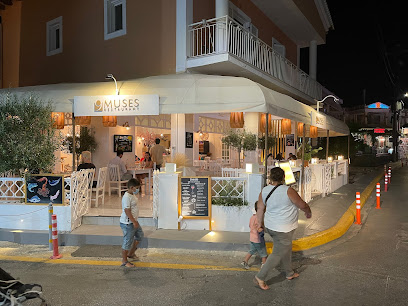
Maria's Supermarket
Experience local life at Maria's Supermarket in Gouvia, Corfu. Fresh produce, Greek delicacies, and handmade crafts await!
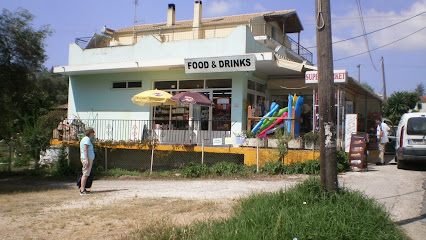
Venetian Arsenal
Explore the historical Venetian Arsenal in Gouvia, Corfu, a former naval base with impressive arched docks and a rich maritime legacy.
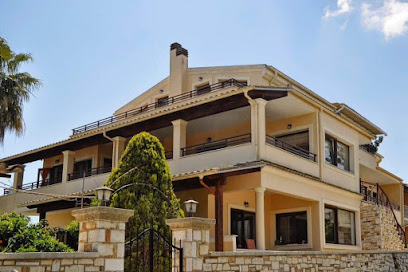
Serbian Monument
Discover the Serbian Monument in Gouvia, Greece, a poignant tribute to history and sacrifice, set in a breathtaking natural landscape.
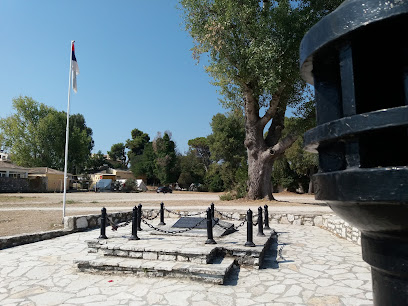
Corfu
Discover Gouvia, Corfu: A vibrant village with a rich history, bustling marina, and beautiful beaches, just a short trip from Corfu Town.
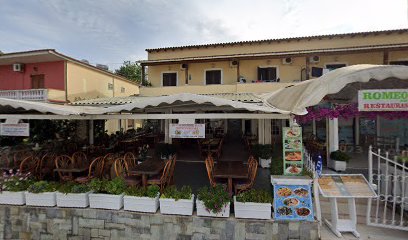
Unmissable attractions to see
Old Fortress of Corfu
Explore the Old Fortress of Corfu, a historic gem offering breathtaking views and a rich tapestry of history in the heart of the Ionian Islands.
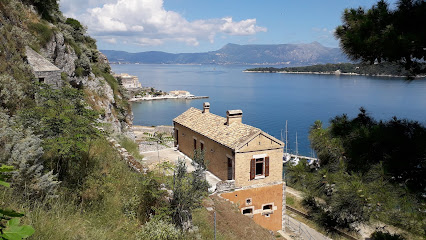
Anemomilos Windmill
Discover the charm and history of Anemomilos Windmill in Kassiopi, a picturesque landmark offering stunning views and a glimpse into Corfu's rich agricultural past.
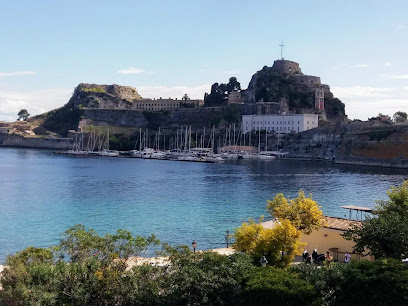
Corfu Pirate Ship Black Rose
Experience the thrill of the high seas aboard the Corfu Pirate Ship Black Rose, where adventure and fun await for the whole family.
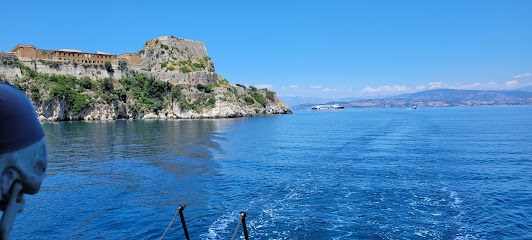
Capodistrias Museum - Kapodistrias Museum
Explore the Capodistrias Museum for a captivating journey into Greece's history and the life of its first governor, Ioannis Capodistrias.
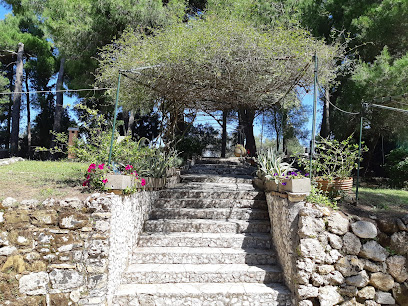
Corfu Airport Planespotting Spot
Discover the thrill of planespotting at Corfu Airport, where stunning views and exciting landings await aviation enthusiasts and curious travelers.
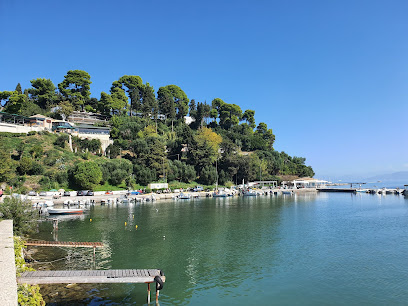
Bell Tower of the Annunziata Church
Experience the rich heritage and breathtaking views from the Bell Tower of the Annunziata Church, a historical landmark in the heart of Corfu.
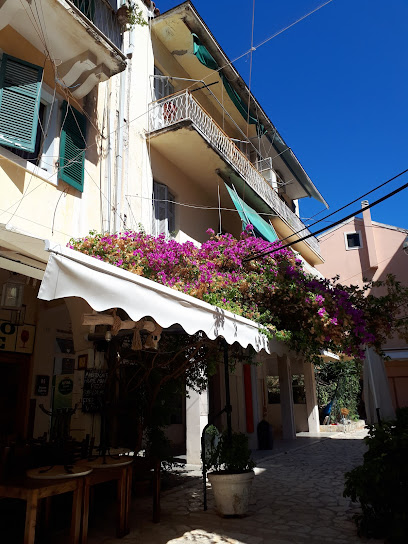
Corfu Byzantine Collection
Explore the Byzantine legacy at the Corfu Byzantine Collection, a captivating museum nestled in the historic Old Fortress of Corfu, Greece.
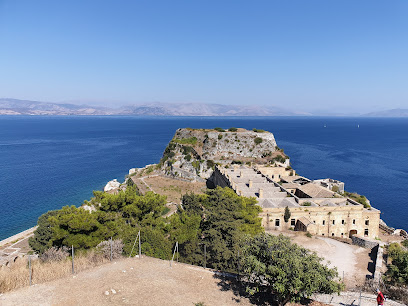
Rand/kaguun
Explore the serene beauty of Rand/kaguun Park in Gouviá, a perfect escape into nature with picturesque views and a peaceful atmosphere.
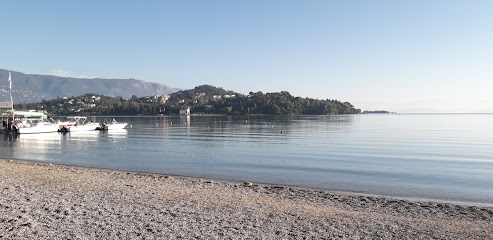
Essential places to dine
TheBest
Experience the authentic flavors of Greece at TheBest Restaurant in Gouvia – a culinary gem offering delicious dishes and warm hospitality.
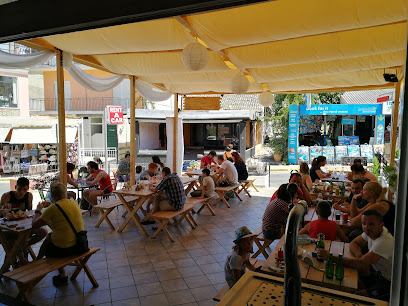
BBQ-ART
Discover BBQ-ART in Gouvia: where sizzling flavors meet Mediterranean hospitality in a vibrant dining atmosphere.
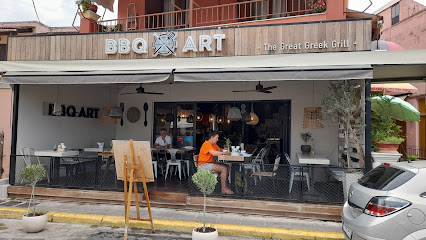
Aries Taverna
Discover Aries Taverna: A Culinary Gem in Kerkura Offering Authentic Greek Dishes with Warm Hospitality.
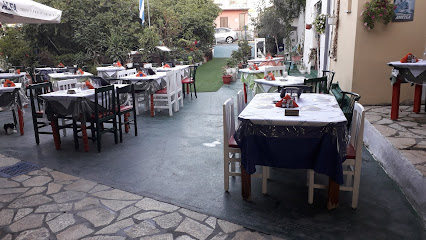
Restaurant Vergina
Experience authentic Greek flavors at Restaurant Vergina in Gouvia - where every dish tells a story.
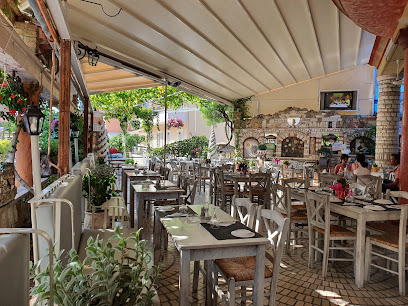
Mythos Restaurant Gouvia
Experience authentic Greek cuisine in Gouvia at Mythos Restaurant - where every meal tells a story.
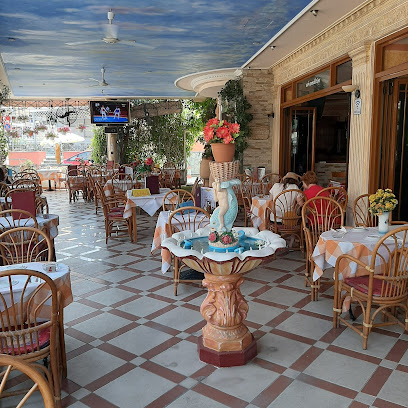
La'Kantas Restaurant & Taverna
Discover authentic Greek flavors at La'Kantas Restaurant & Taverna in Gouvia - a must-visit culinary destination for tourists.
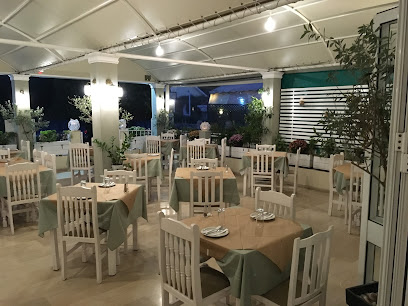
Red Chilli Indian Restaurant
Experience the authentic flavors of India at Red Chilli Indian Restaurant in Corfu, where every dish is crafted with love and tradition.
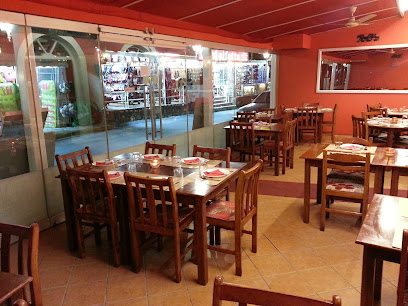
9 Muses Restaurant
Discover authentic Greek cuisine at 9 Muses Restaurant in Gouvia - a must-visit culinary destination on Corfu Island.
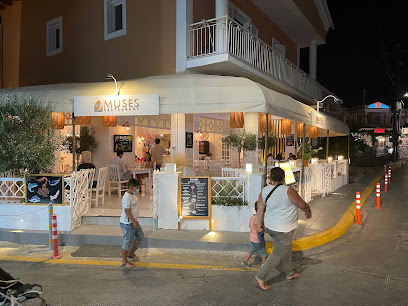
Iliada Beach Restaurant
Experience authentic Greek flavors at Iliada Beach Restaurant in Gouvia - where every meal comes with stunning sea views.
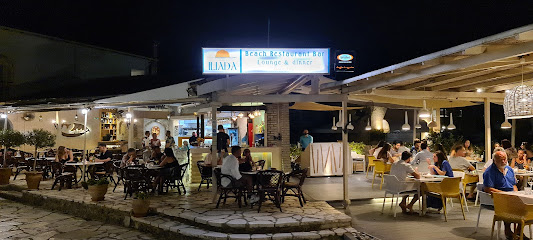
Tavern at Mathraki Resort
Discover authentic Greek cuisine amidst stunning views at Tavern at Mathraki Resort in Gouvia, Corfu.
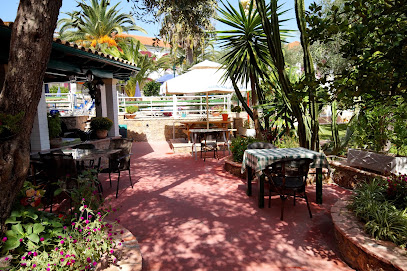
Markets, malls and hidden boutiques
DIELLAS
Explore the vibrant offerings of DIELLAS in Gouvia, a supermarket and butcher shop perfect for all your culinary adventures in Greece.
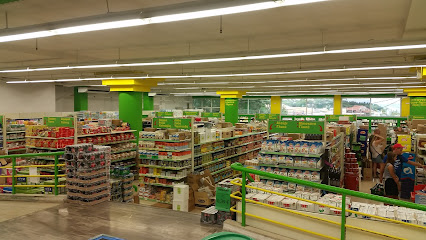
Technomarket
Discover your essential hardware needs at Technomarket in Γουβιά, where quality tools and local expertise meet.
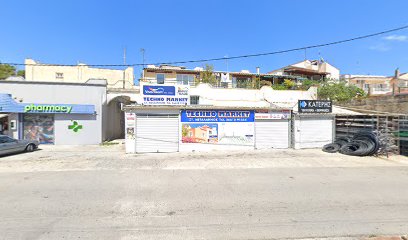
Market Gouvia
Explore Market Gouvia - your go-to supermarket in Gouvia, Greece, for local flavors, fresh produce, and delightful shopping experiences.
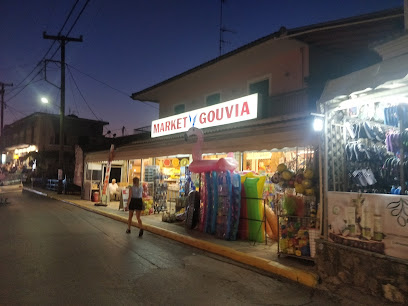
Giftland-Gouvia
Discover unique souvenirs and local crafts at Giftland-Gouvia, the perfect stop for tourists in search of authentic Greek gifts.
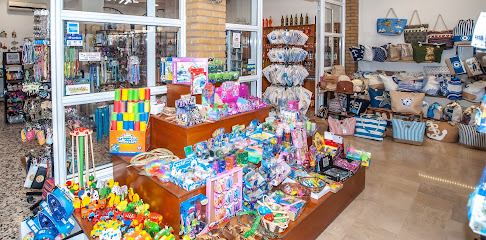
Despoina gift shop & clothes
Discover unique handcrafted gifts and stylish clothing at Despoina Gift Shop in Γουβιά, where local artistry meets warm hospitality.
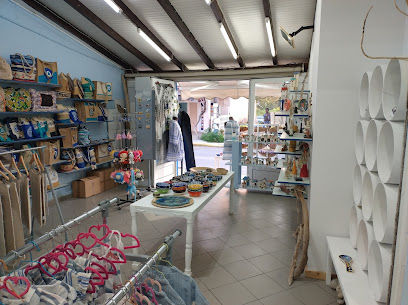
Discount Market
Experience the true flavor of Greece at Discount Market in Gouvia, where local produce and unique specialties await every visitor.
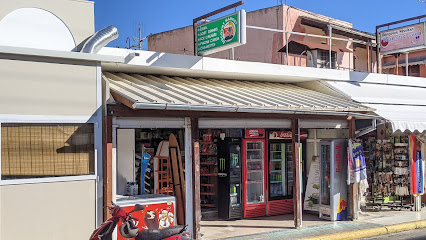
leather shop
Experience the art of leather craftsmanship in Γουβιά, where each pair of shoes tells a unique story of Greek tradition and artistry.

FIRSTHING&NOEL
Explore FIRSTHING&NOEL in Γουβιά for unique local crafts and a taste of authentic Greek culture while shopping.
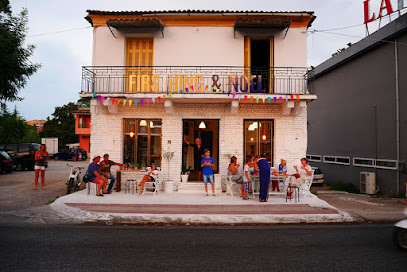
Harri's - Clothes-Shoes-Souvenirs
Explore Harri's in Gouvia for stylish clothing, quality footwear, and unique souvenirs that celebrate the charm of Corfu.
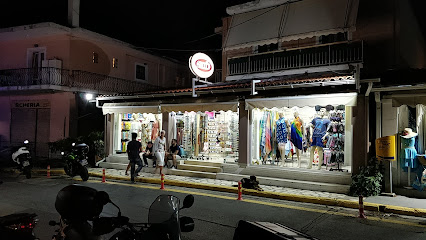
Costas Supermarket
Discover local flavors and authentic Greek products at Costas Supermarket in Gouvia, perfect for culinary enthusiasts and tourists alike.
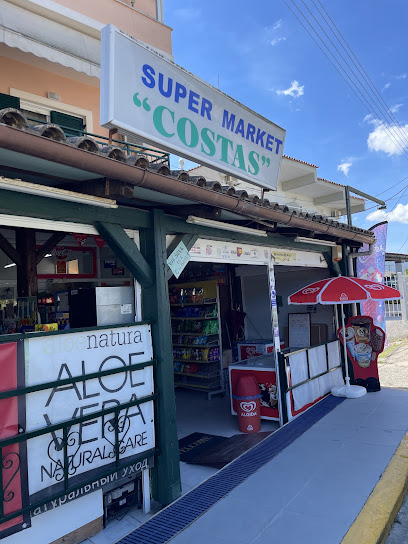
Essential bars & hidden hideouts
TheBest
Discover the authentic taste of Greece at TheBest Restaurant in Gouvia, where fresh ingredients and local flavors come together for an unforgettable dining experience.
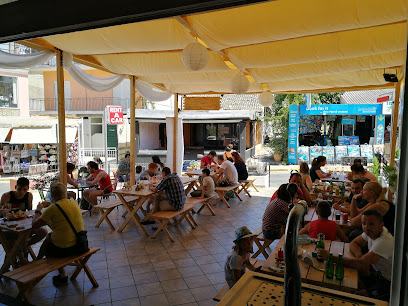
O2 Old School Rock Bar
Discover O2 Old School Rock Bar in Gouvia, a must-visit live music venue for rock enthusiasts and nightlife lovers in Corfu.
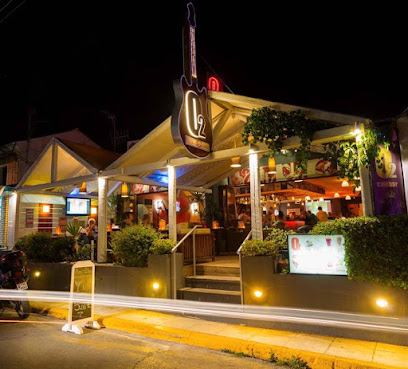
Vertigo Restaurant & Cocktail Bar
Enjoy breathtaking views and exquisite cuisine at Vertigo Restaurant & Cocktail Bar in Gouvia, Corfu - the perfect spot for a memorable evening.
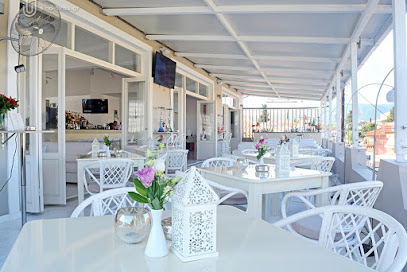
Wild Rose
Discover the vibrant atmosphere of Wild Rose in Gouvia, where exquisite drinks and lively entertainment create an unforgettable night out.
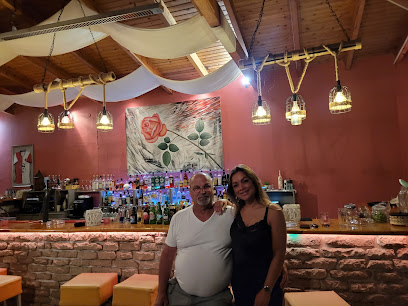
Melodies
Experience the vibrant nightlife of Γουβιά at Melodies, a charming bar offering delightful drinks and a welcoming atmosphere.
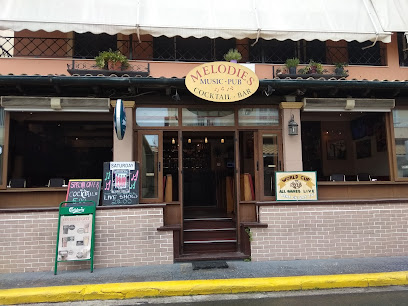
Whispers Bar
Experience the vibrant nightlife at Whispers Bar in Γουβιά, where expertly crafted cocktails meet an inviting atmosphere and lively ambiance.
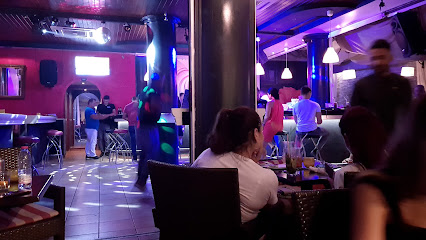
My Place Bar
Discover My Place Bar, Gouvia's vibrant cocktail bar offering a unique atmosphere and a diverse selection of expertly crafted cocktails.
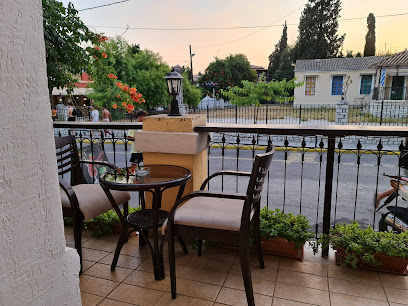
Desperados Bar
Experience the vibrant nightlife at Desperados Bar in Gouvia, Greece, where exceptional cocktails and lively entertainment await you.
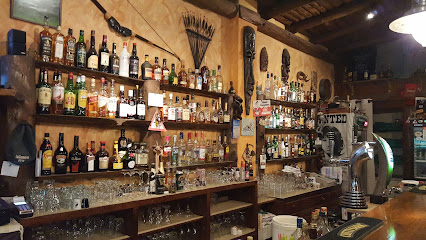
Kaktus Beach Bar | Corfu
Discover Kaktus Beach Bar in Gouvia, Corfu, where delicious grilled cuisine meets stunning sea views in a lively atmosphere.
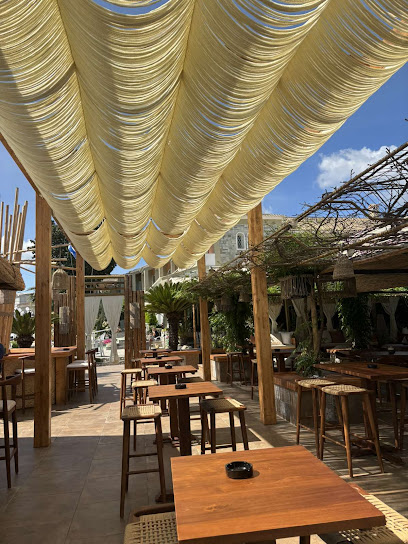
SFERA
Experience the vibrant nightlife at SFERA, an inviting bar in Γουβιά, known for its unique cocktails and lively atmosphere.
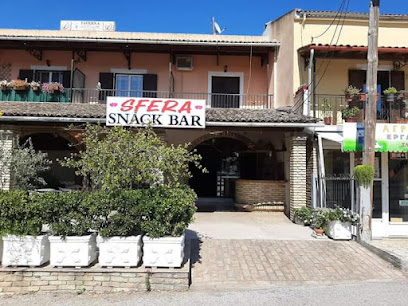
Local Phrases
-
- HelloΓεια σας
[Yia sas] - GoodbyeΑντίο
[Adio] - YesΝαι
[Ne] - NoΌχι
[Ohi] - Please/You're welcomeΠαρακαλώ
[Parakalo] - Thank youΕυχαριστώ
[Efharisto] - Excuse me/SorryΣυγνώμη
[Signomi] - How are you?Πώς είσαι;
[Pos ise;] - Fine. And you?Καλά. Εσύ;
[Kala. Esi;] - Do you speak English?Μιλάτε Αγγλικά;
[Milate Agglika;] - I don't understandΔεν καταλαβαίνω
[Den katalavaino]
- HelloΓεια σας
-
- I'd like to see the menu, pleaseΘα ήθελα να δω το μενού, παρακαλώ
[Tha ithela na do to menou, parakalo] - I don't eat meatΔεν τρώω κρέας
[Den troo kreas] - Cheers!ΥΓΕΙΑ!
[Yia!] - I would like to pay, pleaseΘα ήθελα να πληρώσω, παρακαλώ
[Tha ithela na plirosο, parakalo]
- I'd like to see the menu, pleaseΘα ήθελα να δω το μενού, παρακαλώ
-
- Help!Βοήθεια!
[Voithia!] - Go away!Φύγε!
[Fiye!] - Call the Police!Καλέστε την Αστυνομία!
[Kaleste tin Astinomia!] - Call a doctor!Καλέστε ένα γιατρό!
[Kaleste ena yatro!] - I'm lostΈχω χαθεί
[Eho hathi] - I'm illΕίμαι άρρωστος
[Ime arrostos]
- Help!Βοήθεια!
-
- I'd like to buy...Θα ήθελα να αγοράσω...
[Tha ithela na agoraso...] - I'm just lookingΑπλά κοιτάω
[Apla kitao] - How much is it?Πόσο κοστίζει;
[Poso kostizi;] - That's too expensiveΑυτό είναι πολύ ακριβό
[Afto ine poli akrivo] - Can you lower the price?Μπορείτε να μειώσετε την τιμή;
[Boreite na miosete tin timi;]
- I'd like to buy...Θα ήθελα να αγοράσω...
-
- What time is it?Τι ώρα είναι;
[Ti ora ine;] - It's one o'clockΕίναι μία ώρα
[Ine mia ora] - Half past (10)Μισή (10)
[Misi (10)] - MorningΠρωί
[Proi] - AfternoonΑπόγευμα
[Apoyevma] - EveningΒράδυ
[Vradi] - YesterdayΧθες
[Hthes] - TodayΣήμερα
[Simera] - TomorrowΑύριο
[Avrio] - 1Ένα
[Ena] - 2Δύο
[Dio] - 3Τρία
[Tria] - 4Τέσσερα
[Tessera] - 5Πέντε
[Pente] - 6Έξι
[Exi] - 7Επτά
[Epta] - 8Οκτώ
[Okto] - 9Εννιά
[Ennia] - 10Δέκα
[Deka]
- What time is it?Τι ώρα είναι;
-
- Where's a/the...?Πού είναι ένα/το...;
[Pou ine ena/to...;] - What's the address?Ποια είναι η διεύθυνση;
[Pia ine i diefthinsi;] - Can you show me (on the map)?Μπορείτε να μου δείξετε (στο χάρτη);
[Boreite na mou dixete (sto charti);] - When's the next (bus)?Πότε είναι το επόμενο (λεωφορείο);
[Pote ine to epomeno (leoforeio);] - A ticket (to ....)Ένα εισιτήριο (για το...);
[Ena isitirio (ya to...);]
- Where's a/the...?Πού είναι ένα/το...;
History of Gouvia
-
Gouvia's history is intertwined with the ancient maritime trade routes of Corfu. The area's proximity to the sea made it a strategic location for sailors and merchants, enabling trade with neighboring regions and contributing to the island's wealth during antiquity. Archaeological findings in the vicinity suggest that the area was inhabited as early as the 5th century BC.
-
During the Venetian rule (1386-1797), Gouvia developed into an important naval base. The Venetians recognized the strategic value of Gouvia's harbor, leading to the establishment of shipyards that facilitated the construction and repair of vessels. This period saw the introduction of new architectural styles and the flourishing of trade, which significantly impacted the local economy.
-
Following the fall of the Venetian Republic, Gouvia came under French control in the late 18th century, which introduced administrative changes and reforms. This period was short-lived, as the British took over in 1815, further modernizing the area. The British established Gouvia as a resort destination, paving the way for its future development as a tourist hub.
-
During World War II, Gouvia was affected by the conflict as the island was occupied by Axis forces. The war brought significant hardship to the local population. However, post-war reconstruction efforts led to the revitalization of Gouvia as a naval and tourist destination, building on its historical significance and natural beauty.
-
Today, Gouvia is known for its vibrant marina, attracting yachting enthusiasts from around the world. The neighborhood has transformed into a lively tourist destination, with numerous restaurants, cafes, and shops. Its rich history is reflected in the architecture and cultural events held throughout the year, showcasing the unique blend of influences that have shaped Gouvia over the centuries.
Gouvia Essentials
-
Gouvia is approximately 8 kilometers from Corfu Town, making it accessible by various means. The most common way to reach Gouvia from Corfu Town is by bus, which runs frequently from the central bus station. Taxis are also available, with fares being reasonable for the short distance. For those arriving at Corfu International Airport, taking a taxi or pre-arranged shuttle service is recommended, as public transport options are limited directly from the airport.
-
Gouvia is a compact area, and many attractions can be explored on foot. Local buses connect Gouvia to Corfu Town and other nearby villages, providing an affordable way to travel. Bicycle rentals are popular, allowing visitors to explore the scenic coastline at their own pace. Taxis and ride-sharing services are also available for convenience. Renting a car can be ideal for venturing further afield, particularly if you wish to explore the island's more remote beaches and villages.
-
Gouvia is generally a safe neighborhood for tourists, with low crime rates. However, standard precautions should be taken, such as avoiding poorly lit areas at night and keeping an eye on personal belongings in crowded places. Petty theft can occur, particularly in busy tourist areas. It's best to stay vigilant, especially near popular attractions and during crowded events.
-
In case of emergency, dial 112 for police, fire, or medical assistance. The nearest hospital is in Corfu Town, approximately 8 kilometers away. It is advisable to have travel insurance that covers medical emergencies. For minor health issues, pharmacies in Gouvia can provide over-the-counter medications. Always keep a list of local emergency contacts handy, including your country's embassy or consulate.
-
Fashion: Do wear light, breathable clothing suitable for the warm climate, but avoid overly revealing outfits, especially in religious sites. Religion: Do respect local customs; if visiting churches, cover your shoulders and knees. Public Transport: Do give up your seat for the elderly or those in need. Don’t eat or drink on public transport, as this is considered disrespectful. Greetings: Do greet locals with a friendly 'Kalimera' (Good morning) and a smile. Eating & Drinking: Do try local specialties like pastitsada or sofrito, and don’t refuse a local’s offer of food or drink, as it may be considered rude.
-
To experience Gouvia like a local, visit the small tavernas and cafes away from the main tourist spots where authentic Greek cuisine is served. Engage with locals, who are often welcoming and eager to share their culture. Attend local festivals if your visit coincides with one; they provide a great way to experience the community spirit. Take time to explore the nearby beaches, particularly the lesser-known ones, for a more tranquil experience away from the crowds.
Nearby Cities to Gouvia
-
Things To Do in Saranda
-
Things To Do in Gjirokastër
-
Things To Do in Tepelenë
-
Things To Do in Ioannina
-
Things To Do in Vlorë
-
Things To Do in Patos
-
Things To Do in Berat
-
Things To Do in Meteora
-
Things To Do in Pogradec
-
Things To Do in Kavajë
-
Things To Do in Tirana
-
Things To Do in Durres
-
Things To Do in Krujë
-
Things To Do in Larissa
-
Things To Do in Patras






